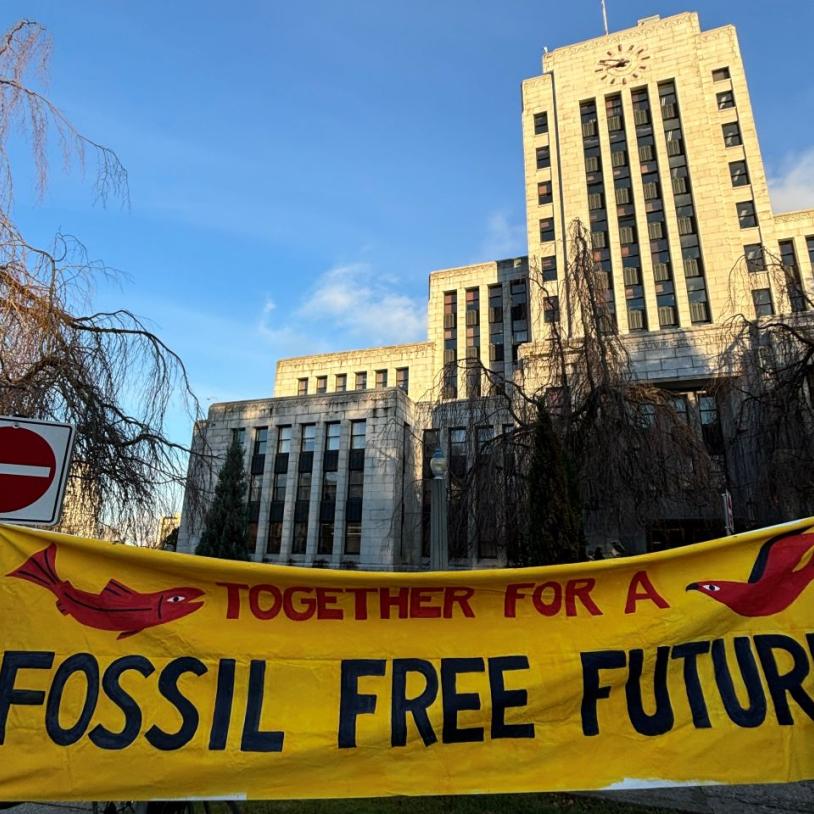Sparks still flying over Harrison hydro dam
Tuesday, June 23, 2009
SPARKS STILL FLYING OVER HARRISON HYDRO DAM
Chilliwack Progress
Thu Jun 18 2009
Page: 1
Section: News
Byline: Robert Freeman
Low environmental standards around B.C. run-of-river hydro projects, repeated non-compliance with existing standards and inadequate enforcement by ministry staff are revealed in documents obtained under the Freedom Of Information Act, says the Western Canada Wilderness Committee.
"We repeatedly hear from Environment Minister Barry Penner that private power projects are held to a rigorous set of rules and regulations to protect our rivers and environment," WCWC policy director Gwen Barlee says.
"However, the B.C. government's own documents prove that is not the case."
But Nick Andrews, a director at Cloudworks Energy, the focus of the WCWC's FOI request, says the environmental group has taken six "selective quotes" from more than 1,800 pages of e-mails and other documents to make "sweeping conclusions" about the impact of the company's run-of-river projects north of HarrisonLake.
"Their statements are misleading at best, and an example of knee-jerk opposition to energy generation in even its greenest forms," he said.
But Patricia Ross, Fraser Valley Regional District chair, said she also has a 2008 ministry report that also shows a "long list of infractions" at the Harrison site.
She said Cloudworks itself has a "pretty good environmental performance record," but its subcontractors may not be meeting the same standards.
The construction of these projects near B.C. creeks and streams has "lots of potential for significant damage, if it's not done right," she said.
But the regional district no longer has any role in the approval process, since new legislation introduced by the B.C. Liberal government.
"Nobody knows the local areas more than the local communities," Ross said. "It's disappointing we're kept out of the loop here."
"We'd all like to support new clean energy sources," she added. "It's frustrating when some of the construction practices and some of the approvals are beyond our control."
Barlee told The Progress she "selected" the six quotes only because of the space limitations of a news release.
She said there are "pages and pages" of instances in the documents where environmental damage was done - and that because B.C. government standards are so low, there was little ministry enforcement staff could do as a result.
Ministry staff do appear surprised in one 2007 e-mail to learn the Cloudworks project is underway, and seem confused about their role in dealing with non-compliance, one of them writing "the best we are doing right now is running after fires."
But Andrews pointed out the statements by individual ministry staff in the WCWC release are taken over a two-year long construction process and "do not accurately reflect final outcomes."
"One, for example, refers to an intent to issue a notice of tenure non- compliance, although no such notice was in fact issued," he said.
Penner also pointed out that large construction projects in remote areas of the province are bound to have "challenges" during construction.
"You have to keep in mind this is a $600-million project employing 300 people, one of the largest east of the Port Mann bridge," he said. "That's why I asked staff to keep an eye on the project, and that's being done."
He said the volume of ministry documents obtained by the WCWC proves his staff are "very actively" monitoring the project.
The WCWC is engaged in an "ideological battle," he suggested, opposing private-sector involvement in run-of-river projects, although they would support them if they were government-owned.
Barlee agreed, but added the WCWC's concern isn't so much ideological as the practical need for long-term planning that only a government can do to ensure the "cumulative impact" of so many projects does no harm to B.C. wildlife and fish habitat.
There are 600 run-of-river projects proposed by private companies since the province's new energy plan sparked a "goldrush" for new sources of electricity, she said.
"We aren't opposed to the technology at all, but we're saying there's a right way and a wrong way to do it," she said.
Andrews said when the WCWC is ready to define what it means by "the right way" to develop green energy, the company would welcome discussions.
Meanwhile, the In-SHUCK-ch people, who will be connected to the BC Hydro power grid at long last because of the Harrison projects, are not happy with the continuing WCWC attacks on Cloudworks.
"We would never have supported and participated in these projects if we weren't fully confident in the environmental standards being applied," Gerard Peters, In-SHUCK-ch chief treaty negotiator, said in a news release.
"These projects are part of the development strategy for our communities, and we resent ill-informed interference like we're seeing from the wilderness committee," he said.
Copyright 2009 Chilliwack Progress





